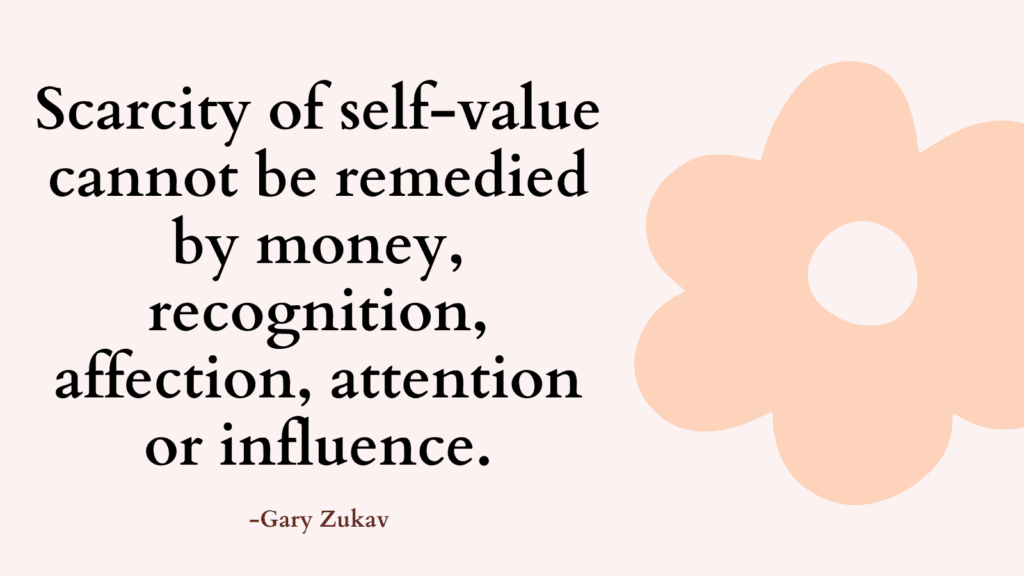This post contains some of the best affirmations for overthinking.
Affirmations For Overthinking
Here are 50 affirmations to help combat overthinking:
1. I release the need to overthink and trust in the process of life.
2. I let go of excessive worry and embrace a calm and peaceful mind.
3. I am in control of my thoughts, and I choose to focus on positive outcomes.
4. I am capable of making sound decisions without overanalyzing.
5. I release the need to overthink and allow clarity to guide me.
6. My mind is calm, clear, and focused on the present moment.
7. I trust in my intuition to guide me in making the right choices.
8. I am confident in my abilities to handle whatever comes my way.
9. I let go of the need for perfection and embrace progress over perfection.
10. I release the need to overanalyze past events and focus on the present.
11. I deserve peace of mind, and I choose to release overthinking.
12. I release the need to control every outcome and trust in the flow of life.
13. I have faith in myself and my ability to handle any challenges that arise.
14. I am enough, and my thoughts do not define my worth.
15. I let go of overthinking and embrace the joy of living in the present.
16. I choose to focus on the solutions rather than dwell on the problems.
17. I release the need to seek approval from others and trust in my own judgment.
18. I am confident in my ability to make decisions that align with my values.
19. I am not defined by my thoughts; I have the power to change them.
Related: Best 10 Books For Overthinking And Anxiety
20. I release the need for certainty and embrace the unknown with curiosity.
21. I let go of overthinking and trust in the divine timing of life.
22. I am worthy of peace and mental clarity.
23. I release the need to replay past mistakes and instead learn from them.
24. I am in control of my thoughts, and I choose to focus on empowering beliefs.
25. I let go of overthinking and trust in the wisdom of my intuition.
26. I am present in this moment and fully engage with the beauty of life.
27. I release the need for constant reassurance and cultivate self-trust.
28. I am capable of finding solutions to any challenges that come my way.
29. I choose to replace worry with gratitude and appreciate the present moment.
30. I let go of overthinking and allow space for creativity and inspiration.
31. I am deserving of inner peace, and I release overthinking to achieve it.
32. I trust that everything is working out for my highest good.
33. I release the need to control every aspect of life and surrender to the flow.
34. I am resilient, and I can adapt to any changes that come my way.
35. I let go of overthinking, and I embrace the freedom that accompanies it.
36. I trust in my ability to make decisions that align with my authentic self.
Related: How To Stop Self-Critical Thoughts Using These Top 10 Techniques
37. I release the need for certainty and embrace the adventure of life.
38. I am mindful and present in this moment, free from overthinking.
39. I let go of excessive analysis and allow myself to enjoy life’s simple pleasures.
40. I am grateful for my ability to think critically while letting go of overthinking.
41. I am open to new perspectives and approaches, freeing myself from rumination.
42. I release the need for control and instead embrace surrender and acceptance.
43. I am confident in my ability to navigate through uncertainty.
44. I let go of overthinking, and I allow myself to experience peace and serenity.
45. I trust in the process of life and have faith in my own abilities.
46. I am worthy of love and acceptance, regardless of my thoughts.
47. I release the need to anticipate every possible outcome and choose to live in the present.
48. I am aware of when overthinking arises, and I consciously choose to redirect my thoughts.
49. I let go of overanalyzing and embrace the simplicity of life.
50. I am gentle with myself, giving myself permission to let go of overthinking.
Remember to choose the affirmations that resonate with you personally and repeat them consistently to reinforce positive thought patterns and combat overthinking.
Related: Impulsive vs Intrusive Thoughts (& How to Manage Them)
How to Effectively Use Affirmations For Overthinking?
Affirmations are positive statements that can help rewire the brain and shift one’s focus from negative, repetitive thoughts to empowering and uplifting beliefs.
When used effectively, affirmations can bring about a sense of calm, self-assurance, and mental clarity. Here’s how you can effectively use affirmations to manage overthinking:
1. Identify Your Overthinking Patterns:
Before delving into the use of affirmations, it’s important to recognize your overthinking patterns.
Take some time to observe the situations, triggers, and thought patterns that contribute to your overthinking.
Understanding the specific areas in which you tend to overanalyze will help you tailor your affirmations to address those particular concerns.
2. Choose Relevant Affirmations:
Once you’ve identified your overthinking patterns, select affirmations that directly counteract those negative thought processes.
For example, if you tend to worry excessively about the future, you might choose affirmations that focus on living in the present moment, trusting in the process of life, and letting go of the need for certainty.
3. Make Them Personal:
It’s essential that the affirmations resonate with you personally.
Customize your affirmations to reflect your own values, strengths, and aspirations.
Using generic affirmations may not have the same impact as ones that are tailored to your specific needs and thought patterns.
Related: Future Tripping: Top 9 Ways to Avoid Future-Tripping
4. Repetition and Consistency:
Repetition is key when using affirmations.
Repeat your chosen affirmations regularly throughout the day, especially during times when you notice yourself slipping into overthinking.
Consistency is crucial in reinforcing new thought patterns and replacing old, negative ones with more positive and constructive beliefs.
5. Belief and Emotion:
As you repeat your affirmations, focus on embodying the emotions and beliefs behind them.
Simply reciting the words without truly connecting to their meaning may not be as effective.
Engage with the affirmations on an emotional level, allowing yourself to feel the truth and positivity within each statement.
6. Visual Reminders:
Place your affirmations in visible locations where you can see them throughout the day.
This could be on sticky notes on your mirror, computer screen, or as a screensaver on your phone.
These visual reminders can prompt you to pause, take a breath, and recite your affirmations, helping to interrupt the cycle of overthinking.
Related: How to Stop “What If” Anxiety Thinking?
7. Pair Affirmations with Mindfulness Practices:
Combining affirmations with mindfulness techniques can enhance their effectiveness.
Engaging in mindfulness meditation or deep breathing exercises while repeating affirmations can create a state of calm and receptivity, allowing the affirmations to sink deeper into your subconscious mind.
8. Gratitude Affirmations:
Incorporating gratitude affirmations alongside those aimed at combating overthinking can be particularly beneficial.
Gratitude affirmations help shift your focus away from worries and towards appreciation for the present moment and the positive aspects of your life.
9. Recorded Affirmations:
Consider recording your affirmations in your own voice and listening to them during moments of relaxation or before bed.
Hearing your own voice delivering the affirmations can strengthen the impact, especially when practiced consistently over time.
10. Monitor Progress and Adjust:
Keep track of your experiences as you integrate affirmations into your daily routine.
Notice any shifts in your thinking patterns, emotional responses, and overall sense of well-being.
If certain affirmations seem particularly effective, consider emphasizing them more, and if others are less impactful, adjust or replace them with alternatives.
Related: +20 Overgeneralization Examples & How to Avoid It

Conclusion
Incorporating affirmations into your daily life can be a powerful tool in managing overthinking.
By selecting relevant, personalized affirmations, practicing them with intention and emotion, and integrating them into your daily routine, you can gradually shift your thought patterns and cultivate a more positive and balanced mindset.
Remember that consistency, belief, and self-compassion are key elements in making affirmations an effective tool for managing overthinking.



